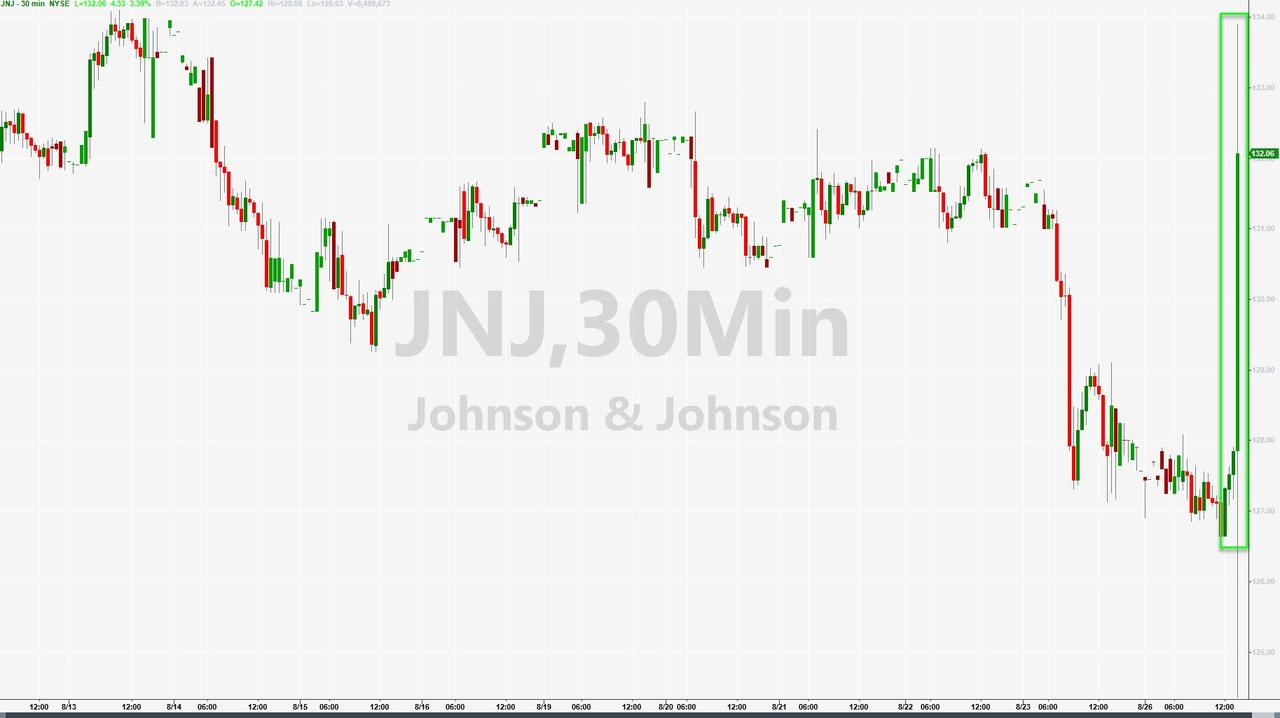Johnson & Johnson Ordered To Pay $572 Million In Landmark Opioid Trial
 By Tyler Durden
By Tyler Durden
In the first of potentially thousands of verdicts against pharmaceutical companies accused of inciting the opioid epidemic, an Oklahoma judge on Monday ruled that Johnson & Johnson must pay a $572 million penalty for allegedly helping to fuel the opioid epidemic with irresponsible marketing practices, Reuters reports.
Judge Thad Balkman, of Cleveland County District Court in Norman, Oklahoma issued the ruling shortly after 4 pm ET on Monday. The penalty was only a fraction of the roughly $17 billion that the plaintiffs had been seeking, helping send J&J shares rocketing higher in the after-hours session.
[do_widget id=text-16]
The case, brought by Oklahoma Attorney General Mike Hunter, is the first out of potentially thousands of lawsuits filed by state and local governments against opioid manufacturers and distributors that could go to trial. Only a few cases have been settled, according to Bloomberg. The case is critical, legal experts say, because it will provide defendants with a clearer benchmark for what they can expect.
If J&J is forced to pay a penalty, Hunter hopes to use the money to help Oklahoma mitigate the fallout from the opioid epidemic over the next three decades by funding treatment and prevention programs.
The J&J trial was held after Oklahoma resolved claims against OxyContin maker Purdue Pharma in March for $270 million, and against Teva Pharmaceutical Industries in May for $85 million, leaving J&J as the lone major defendant.
The seven-week, non-jury trial was closely watched by plaintiffs and defendants in some 2,000 opioid lawsuits pending before a federal judge in Ohio. The judge has been pushing for a settlement ahead of an October trial.
Opioid-related overdoses have skyrocketed in recent years as users migrated from pharmaceuticals to street drugs like heroin, much of which is now tainted with powerful synthetic opioids like fentanyl.
 You will find more infographics at Statista
You will find more infographics at Statista
Lawyers for the state of Oklahoma argued that J&J conducted a years-long marketing campaign that minimized the drug’s addictive qualities. J&J has denied wrongdoing, and insisted that Oklahoma’s case rest.
This article was sourced from ZeroHedge.com
Image credit: The Free Thought Project.
Subscribe to Natural Blaze for health freedom and natural living headlines to your inbox. Follow Natural Blaze on Twitter and Facebook.



